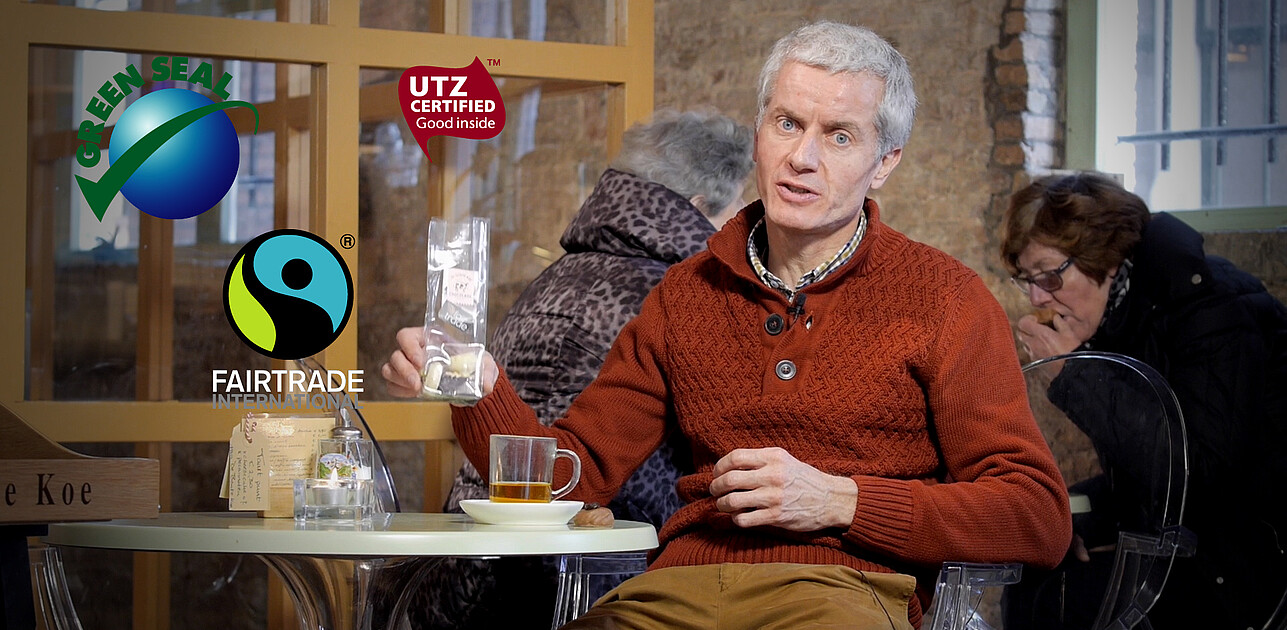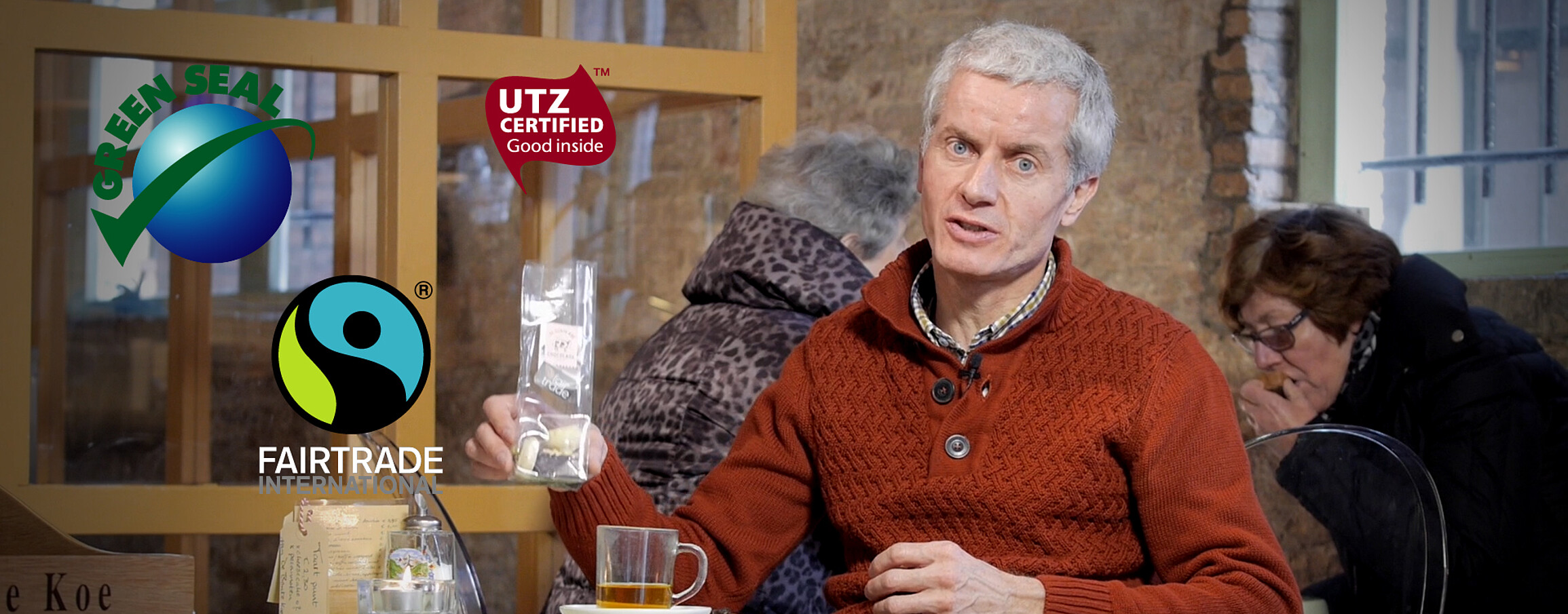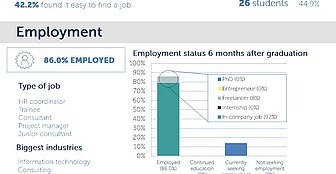
This website uses functional cookies, including analytical cookies. The obtained statistical data cannot be traced back to individual users. Additionally, you can choose to accept or refuse consent to use marketing cookies. If you decline these additional cookies or refrain from making a choice, only functional cookies will be set. See our cookie policy for more information.
Article: Friday, 13 March 2015
The issue of social and environmental sustainability is arguably highly relevant today, as forward-looking, self-interested companies have broadly shown they understand. Adherence to the principles underlying standards to pursue sustainability can, however, deliver unintended consequences.

This video cannot be loaded, as you have not accepted cookies.
Click here
to watch this video directly at the source.
How sustainable is sustainability? Some people might ask this question ironically, drawing attention to the lack of a standard definition of a word. It can mean quite different things to different people in different industry sectors and geographies, and even to people working in the same field but on opposite sides of the fence.
My recently published paper "Means versus ends in opaque institutional fields: trading off compliance and achievement in sustainability standard adoption" stresses, inter alia, that standard creators perceive a clear need to design sustainability standards in such a way that their adopters fully understand and live up to the underlying principles and rules of such standards. However, even if adopters fully comply with the standard requirements that they are being asked to meet, problems will almost inevitably arise.
Labels such as Fair Trade and Utz were created to certify that products sold in their name are produced in a socially and environmentally sustainable way. These labels certify that producers, often located on other continents, do not degrade the natural environment and significantly improve the income and working conditions of vulnerable labourers.
Producers who are anxious to achieve certification – in the expectation that they will thus be able to charge a premium price or obtain privileged access to certain markets – cannot, however, necessarily be assumed to fulfil their responsibilities. They might deliberately not live up to the duties being imposed upon them or simply not understand how to comply; whatever the reason, this failure undermines the credibility and effectiveness of the labels themselves.
…the trade-off between enforcing compliance and achieving the goals envisaged by standard creators is inherent and cannot be resolved.
Such a lack of compliance is driven by opacity around the social and environmental conditions of global production chains. Opacity, in turn, has multiple causes: one, the difficulty in effectively monitoring foreign producers (entailing the risk of cosmetic compliance by adopters who wish to enjoy the benefits of compliance without bearing the costs); two, the complex interrelations of causes and consequences (leading to uncertainty among adopters as to the nature of what comprises compliant behaviour); and three, the prevalence of multiple practices (involving ambiguity among adopters as to desired practices).
To solve the opacity-related problems of uncertainty, ambiguity, and lack of incentives, standard setters can take three steps. One, creators of Fair Trade, Utz or similar certification schemes can set out rules clearly, intelligibly and unequivocally. Two, they can offer strong incentives to producers, both positive (such as price mark-ups or privileged market access) and negative (in particular, impose sanctions in cases of non-compliant behaviour). Three, standard creators can share ‘best practices’ on meeting their interpretation of sustainability, spelling out how to meet their demands.
However, universal rules do not always work as interpretations of sustainable business practices might diverge. One instance is the use of child labour. A European certificate issuer might target the elimination of child abuse in order to protect a vulnerable group and mandate a ban on child labour. However, farmers in countries like Cameroon will react with bemusement: they often view the deployment of their children in a family enterprise as akin to routine domestic chores, and therefore not abuse.
Tackling the issue is challenging, to say the least. If standard creators ignore local interpretations of sustainability, they may overshoot their goals. However, paying too much attention to idiosyncrasies might undermine the clear and universal nature of rules and, hence, adopter compliance. The more leeway that standard adopters are given to deviate from specified rules, the less likely they are to be compliant with standard requirements.
I argue that the trade-off between enforcing compliance and achieving the goals envisaged by standard creators is inherent and cannot be resolved. It can, however, be mitigated. One option is to foster a systemic mindset, in which adopters duly consider the direct and indirect relations between causes and consequences.
Another partial remedy is to stimulate the internalisation of a standard’s goals. Finally, universal ‘master standards’ that are complemented by niche standards enables adopters to adapt to context specificities. Therefore, systemically designed institutions that promote goal internalisation and duly consider context contingencies offer the potential to strike a balance between the rigidity required for substantive compliance and the flexibility to cope with the causes of opacity.
The paper’s insights hold not only for sustainability standards but also for a variety of other opaque fields in which standard setters aim to achieve certain goals (including education, financial stability, health care, traffic security, and public service). Awareness of the means-ends trade-off and application of the outlined mitigation options will enable practitioners to devise and implement reasonably effective standards.


Frank Wijen is an Associate Professor at the Department of Strategic Management and Entrepreneurship of Rotterdam School of Management, Erasmus University Rotterdam. He holds a PhD in management from Tilburg University, where he also worked as a Senior Researcher. His research interests include institutional processes, globalization, power and influence, organizational learning, and corporate and national environmental management. Frank published in journals such as Academy of Management Review (2014, 2015), California Management Review (2011, 2018), Journal of Management (2022, 2023), Organization Science (2013), Organization Studies (2006, 2007), Regulation & Governance (2022), Strategic Management Journal (2018), and Strategic Organization (2011), and was the leading editor of A handbook of globalisation and environmental policy, second edition (2012, published by Edward Elgar).
This article is based on the paper "Means versus ends in opaque institutional fields: trading off compliance and achievement in sustainability standard adoption", written by Frank Wijen and published in the Academy of Management Review (STAR), 2014, 39(3).

The long-standing discussion on decoupling has recently moved from adopters not implementing the agreed-upon policies to compliant adopters not achieving the goals intended by institutional entrepreneurs. This “means-ends decoupling” prevails especially in highly opaque fields, where practices, causality, and performance are hard to understand and chart. I conceptualize the conditions under which the adoption of institutions in relatively opaque fields leads to the achievement of the envisaged goals. Voluntary sustainability standards governing socioenvironmental issues illustrate these arguments. I argue that the lack of field transparency drives institutional entrepreneurs to create and maintain concrete and uniform rules, apply strong incentives, and disseminate “best practices” to ensure substantive adopter compliance. However, such rigid institutions are ill-equipped to deal with the causal complexity and practice multiplicity underlying opacity while they smother adopter agency. The ensuing tension between substantive compliance and goal achievement leads to an inherent trade-off: institutional entrepreneurs who remedy the policy-practice decoupling may enhance the disparity between means and ends, and vice versa. While sustainability standards and other institutions in highly opaque fields can, therefore, not fully achieve the envisaged goals, the trade-off can be reduced through systemically designed institutions that promote goal internalization and contain niche institutions.



















Rotterdam School of Management, Erasmus University (RSM) is one of Europe’s top-ranked business schools. RSM provides ground-breaking research and education furthering excellence in all aspects of management and is based in the international port city of Rotterdam – a vital nexus of business, logistics and trade. RSM’s primary focus is on developing business leaders with international careers who can become a force for positive change by carrying their innovative mindset into a sustainable future. Our first-class range of bachelor, master, MBA, PhD and executive programmes encourage them to become to become critical, creative, caring and collaborative thinkers and doers.
